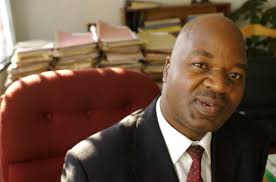By Byron Mutingwende
The Voluntary Media Council (VMCZ) has lamented an upsurge in the harassment of media personnel in the country, mostly perpetrated by law-enforcement agents, who are normally expected to protect the journalists and members of the public. Speaking in Bulawayo at the organisation’s Annual General Meeting on Thursday, 30 November 2016, the VMCZ Board Chairperson, Alec Muchadehama bemoaned the fact that several journalists had been detained and assaulted by members of the uniformed forces while going about their lawful and constitutional duties.
“The VMCZ has expressed concern at the heavy-handed manner the police have treated the media. We have issued several statements condemning the police behaviour and calling for the protection of members of the Fourth Estate. The VMCZ continues to urge the police to desist from harassing the media and instead they should be protecting the journalists from unruly elements hindering members of the press from executing their duties,” Muchadehama said.
The VMCZ however commended efforts by its partners, led by the Media Institute of Southern Africa (MISA-Zimbabwe), who engaged the police to register concerns at the escalating ill treatment of journalists by the police. The media lobby body said that it remained hopeful that a sober way of ensuring journalist’s safety and security would be found and guaranteed by all parties.
On the legislative front, it said that it was alarmed at attempts by the state to introduce Internet regulation laws ostensibly aimed at regulating Internet terrorism and cyber bullying.
“While the VMCZ condemns acts of Internet terrorism and cyber crimes, the organisation is concerned with laws that will limit freedom of expression while at the same time intruding on citizen’s rights to privacy. The VMCZ is concerned that the laws will be used to silence democratic forces that the government views as a threat to their hold on power.”
It lambasted the slow pace in the law re-alignment front. That was because almost three years after the enactment of the new constitution, there has been no urgency in aligning restrictive media laws to be in line with the new constitution.
“We hope the government will expedite the law re-alignment process so that repressive media laws are removed from the country’s statutes or realigned in line with Section 61 and Section 62 of the new constitution.”
The VMCZ Executive Director, Loughty Dube said that the media sector had not been spared from the tough economic situation prevailing in the country. Dube said that the tough economic situation had seen many media organisations cut their workforce and reduce drastically their operational costs.
“All this has had an impact on the quality of stories that are produced and has also impacted negatively on professionalism, journalism standards and media ethics. The majority of media organisations are now failing to pay journalists on time and in instances where they are paid they are paid in batches while in some instances they are not even paid at all and are owed dues running into months in unpaid salaries,” Dube said.
Dube had no kind words on the issue that journalists have been beaten, arrested and in some instances forced to destroy videos, pictures and part of their work by law enforcement agents.
“The VMCZ condemns the police actions and we call on the police to desist from taking that path and instead we call for continued engagement to find a lasting solution to this problem.”
While all has not been rosy for the media, new broadcasters who were licensed last year and have gone on air encouraged the VMCZ.
“We congratulate Ya FM and three more commercial radio stations that managed to conduct test runs on their equipment in the last few weeks. I am happy to announce and welcome officially ZiFM Stereo into the VMCZ family after the radio station two weeks ago committed to media self-regulation by officially joining VMCZ,” Dube added.
